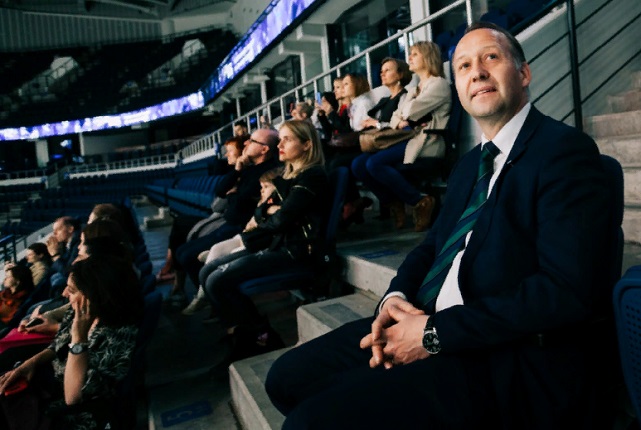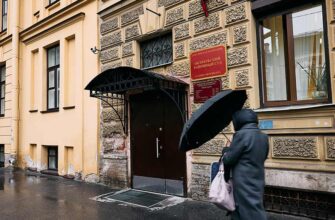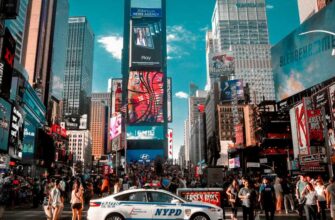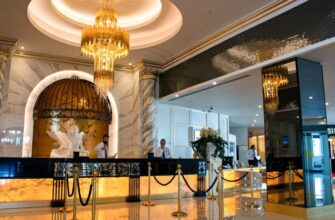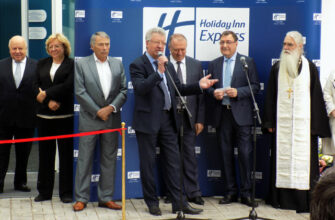Tourism is an industry on which the leaders of Russia have high hopes following the global trend. Promotion of national tourist routes gives the country not only popularity in the world, but also a good income to the budget. But tourism is not only cultural places or beaches, there is also a special and promising corporate or business tourism (MICE), which requires a very special approach. But with careful attention to this area, the country can get a special economic effect.
On this topic”E-Vesti” talked to General Manager of the successful “Renaissance Moscow Monarch Center” and Chairman of the Committee Of the Association of European Business for hotel business and tourism Mr. Armin Eberhard. Our vis-a-vis is generally optimistic about the prospects of Russia in the development of corporate tourism. He believes that our country will be able to expand its opportunities by attracting the European market. Read his interview and you will learn a lot about business tourism in general and Russian advantages there in particular.
EV: Armin, you’re talking about German experience in developing Russian MICE market. Why do you think it is useful for Russia?
Armin Eberhard: Since the very successful project conclusion of hosting the FIFA Football World Cup Russia including Moscow it has grown in hotel supply number of available beds. In order to fill this supply efficiently post-World cup-2018 feeder markets outside of the Russian Federation are needed.
Since the crisis in 2014 a new and growing demand has been registered from Far Eastern neighboring countries, foremost China and India. But to achieve quality balance in the demand tourism alone does not allow for growth within the industry to satisfy acceptable conversion to profit, funds for reinvestment and development.
A key component for this is the MICE industry, Meetings, Incentives, Congresses and Events, offering good margins for the industry as a host of such projects. Germany represents the largest MICE market in Europe and if we include German speaking central Europe, even more so. Therefore, the reach out to this market in the current climate of isolation and diplomatic stagnation is key to re-introduce the MICE market to the destinations in Russia, especially Moscow.
EV: Does German MICE market depend on internal (German or European) or external visitors more?
Armin Eberhard: The German MICE market is predominantly internal when it comes to incentives, Meetings and Congresses are internationally in demand with companies attending from all over the world and events depend on their focus, are they using the event destination for a global audience or is it nationally focused.
EV: What kind of places are usually used for MICE tourism in Germany: congress centers or hotels or some others?
Armin Eberhard: During our conference the attending guests highlighted that especially in the incentive and events segment diversity is in demand, and we see similar trends in the Russian market for this segment, too. In the German market the contrast between established & curate mixed with nature and outdoors, formal and relaxed are making for interesting programs clients are looking for.
For this kind of contrast Russia can offer a lot obviously with space in abundance. Of course, the size of the project also plays a big role, we can see incentives for several hundred and thousands of attendees, or highly quality incentives for small groups of under 50 delegates.
EV: Is there any seasonal factors like in other tourism? Can it compensate low season?
Armin Eberhard: In Germany high season for MICE falls into May and November (Ivo Baumann ICJ). The typical vacation season mid-summer is left for tourism and for employees to take their time off in most industries, therefore the MICE activities are lower. We can see events falling into the early part of the year as well though, for Pharma cycles and sales kick-off conferences and meetings.
Hotels play a big part in MICE venues, but are often limited in size. Congresses are most suited for the centers created for them and events are flexible and chose the venue based on theme and size, incentives require a variety of locations for their program which usual spreads over several days.
EV: What factors influence most of all on MICE tourism development in Germany and globally?
Armin Eberhard: Availability for the size required, a large project requires large venues, halls, restaurants and activities that can be organized for large scale groups, high end incentives in small numbers do not look for large hotels and look for more private, exclusive and bespoke solutions. The more a destination can offer in choice to all these different requirements the more it is in demand in general. Seasonality plays a role, as we know winter countries like to use the dark days to travel to the permanent summer countries. Accessibility is key, to move several hundred or thousand people to a destination access by land sea and air, in the right frequency and as direct as possible is a major deal breaker. Of course access to the country for migration purposes is also important, the easier a country makes it to invite guests for an event the easier it is for the organizer to oversee the risk of the project. A simplified visa regime for this purpose will be a very big advantage for Russian destinations to be competitive whit European destinations. Value for money, cost factor to fit the program into the budget is important.
EV: What segments are the most popular in Germany for MICE (5*, 4*, 3*?)?
Armin Eberhard: In terms of hotel service levels this depends on the logistics and that depends on the size of the supply. Also, a business client will decide what level of service is required and fits best to the project he envisages, the larger the event or congress or incentive the more the issue is space availability and location of the hotel. Smaller events usually have more choices.
EV: How many investments are made in German MICE tourism? Did you calculate Russian investments needed?
Armin Eberhard: Due to the Federal structure in Germany, tourism including business tourism is marketed by each state individually, as can be seen for example at IMEX or MITT, where different states run their own stand representation, some engage more or less. This comes out of the state’s budget and their events and tourism bureaus. The greater part of investments, in venues, facilities etc. are made by private business. Working hand in hand between the private initiatives and a congress or convention bureau showed in any city in the world the best results and the most development, if you look at Vienna, Prague, Munich and many others.
EV: How state supports MICE in Germany, in Europe (especially in leading cities)?
Armin Eberhard: Investments in infrastructure for locals and business but for tourists and business tourists alike for example, Support of private initiatives, cooperation of state or city and its convention bureau and private companies in this field, agencies, hotels, convention centers, restaurants and other venues. Attendance of important trade shows around the world, for tourism and MICE separately, support hosting of delegates with programs to show off the city or state and its capabilities, road shows in other countries bringing the destinations and its possibilities to foreign markets together with private, branded and unbranded businesses and many more.
EV: How you estimate Russian internal MICE market?
Armin Eberhard: The Russian market has become more and more important for Russian destinations. Localization and import substitution and various other detrimental initiatives between countries have created artificial barriers for trade and therefore also for business travel. Add to this negative campaigning influencing perceptions of destinations.
Therefore Russian company and agency activities are needed to create suitable demand. Because the largest country in the world has a relatively small population in comparison growth for the MCIE market cannot be created internally. Many International business in all segments of industry operate and produce in Russia already and their MCIE activities in Russia are very important. But these organizations also look outside for plans, hosting incentives in the Mediterranean or Turkey etc. Destinations like Moscow need therefore foreign companies doing the opposite and decide to leave their country and experience Russia.
EV: Will Russia be able to propose appropriate terms to European MICE tourism according to current trends? If yes, how long will it takes and what conditions are needed?
Armin Eberhard: Very much so Russia and destinations like Moscow have a lot to offer for foreign companies to consider for MICE activities. For one, the destination is relatively unknown and while neighboring countries and capitals like Czech Republic, Poland, Bulgaria, Croatia and so on have been discovered Russia is still of interest and travelers are curious about the country that has all.
With the large investment and massive scale programs cities like Moscow, St. Petersburg, Kazan and so on have been transformed into modern major cities with excellent facilities, great connections and lots of choice for MICE projects, in the cities and around. In addition to this a concept and city and government support is needed to tell the world about it, that’s when the convention bureau comes in. And the announced visa process simplification with the electronic visa arrival will be an important addition to the package on offer.
EV: What competitive advantages do you see in Moscow?
Armin Eberhard: Moscow is the largest city in Europe and for those travelers who realize this it becomes a point of interest to visit by itself. The cities venues, congress halls, exhibition centers, stages, restaurant choices and entertainment facilities and areas are of absolute comparable quality with any other European metropolis, if not better than some already. The dynamic of new concepts opening, like the development of loft venues in new and old buildings, more and more varying restaurant concepts, like the Depo Food mall, these are all compelling arguments to chose Moscow over other destination to offer your clients something new and exciting and not on everybody’s done-it list. Value for money, sure the city is not cheap, of course not, it’s the capitol, but from EURO a perspective the city offers much better value at the moment than many other established European and international destinations, and that counts especially when you plan for big groups. And that all besides the standard easy accessibility of the city by air land and sea.
